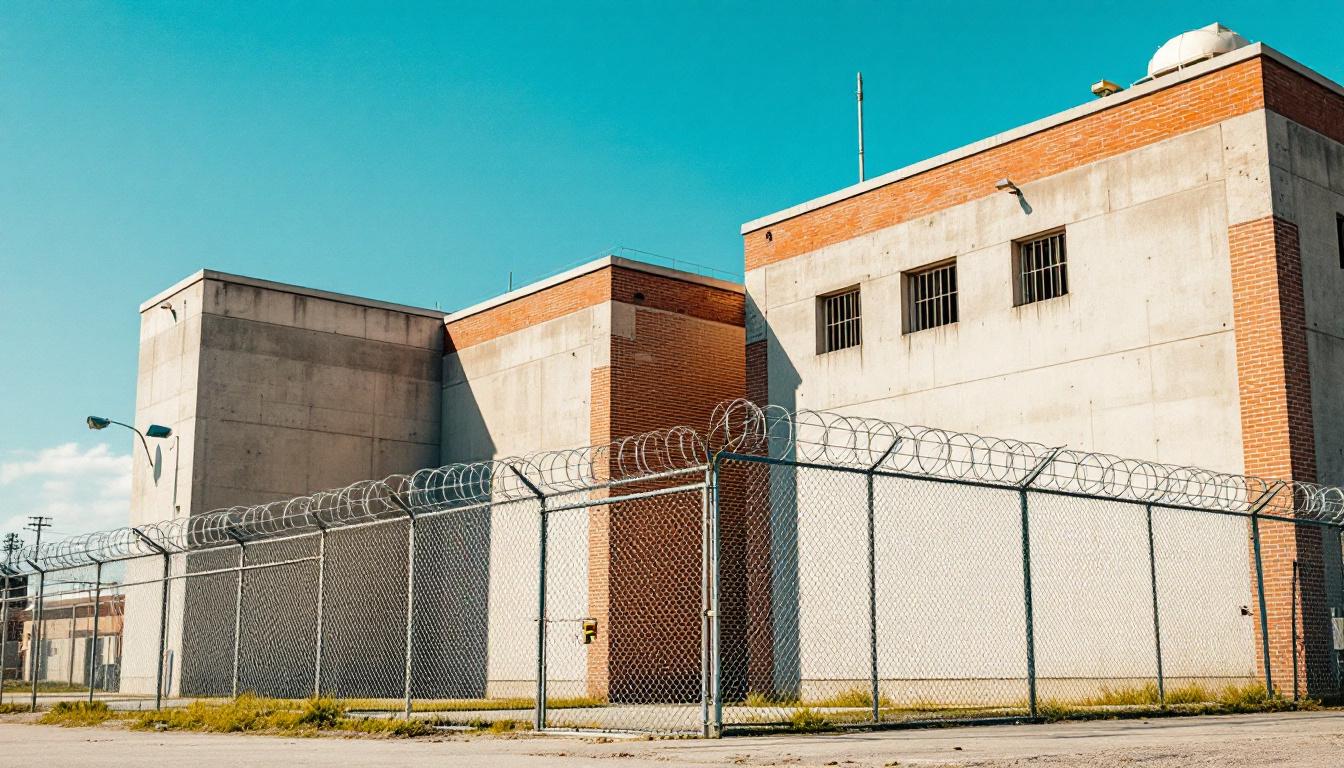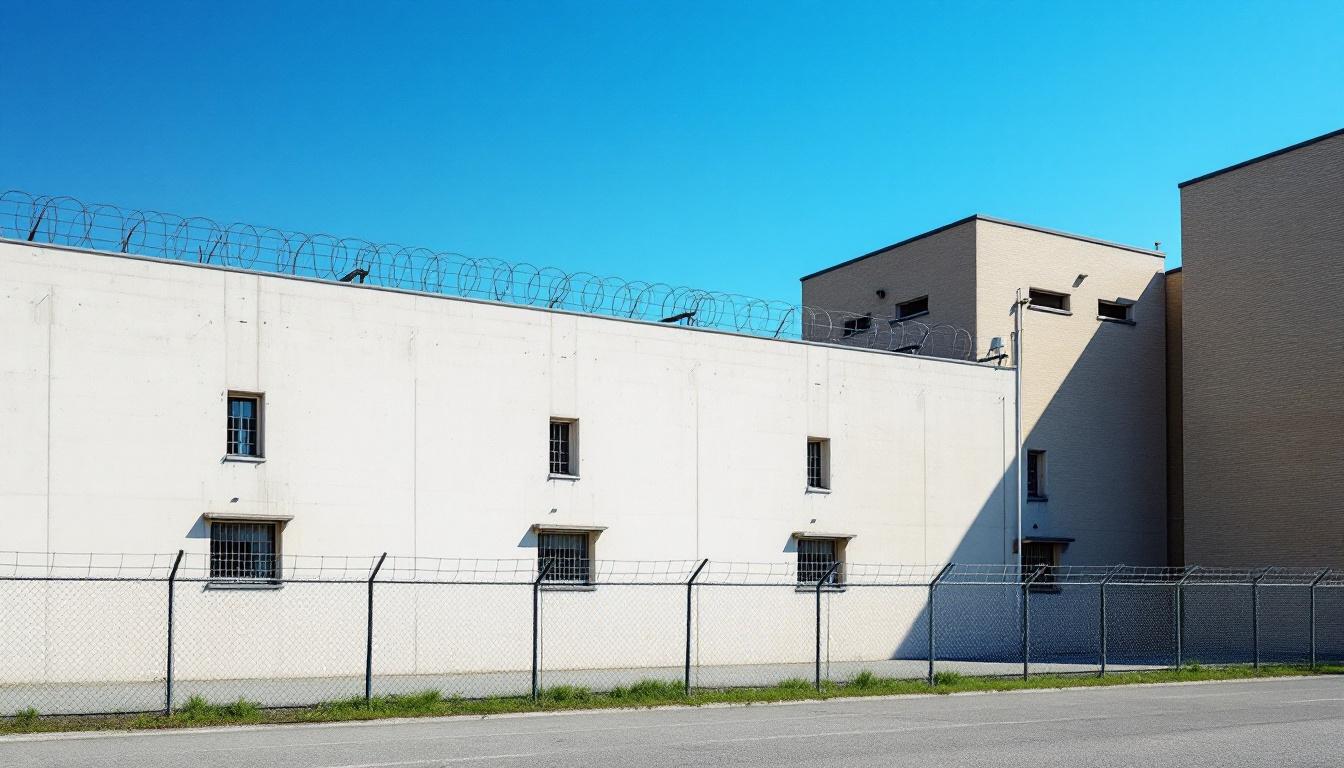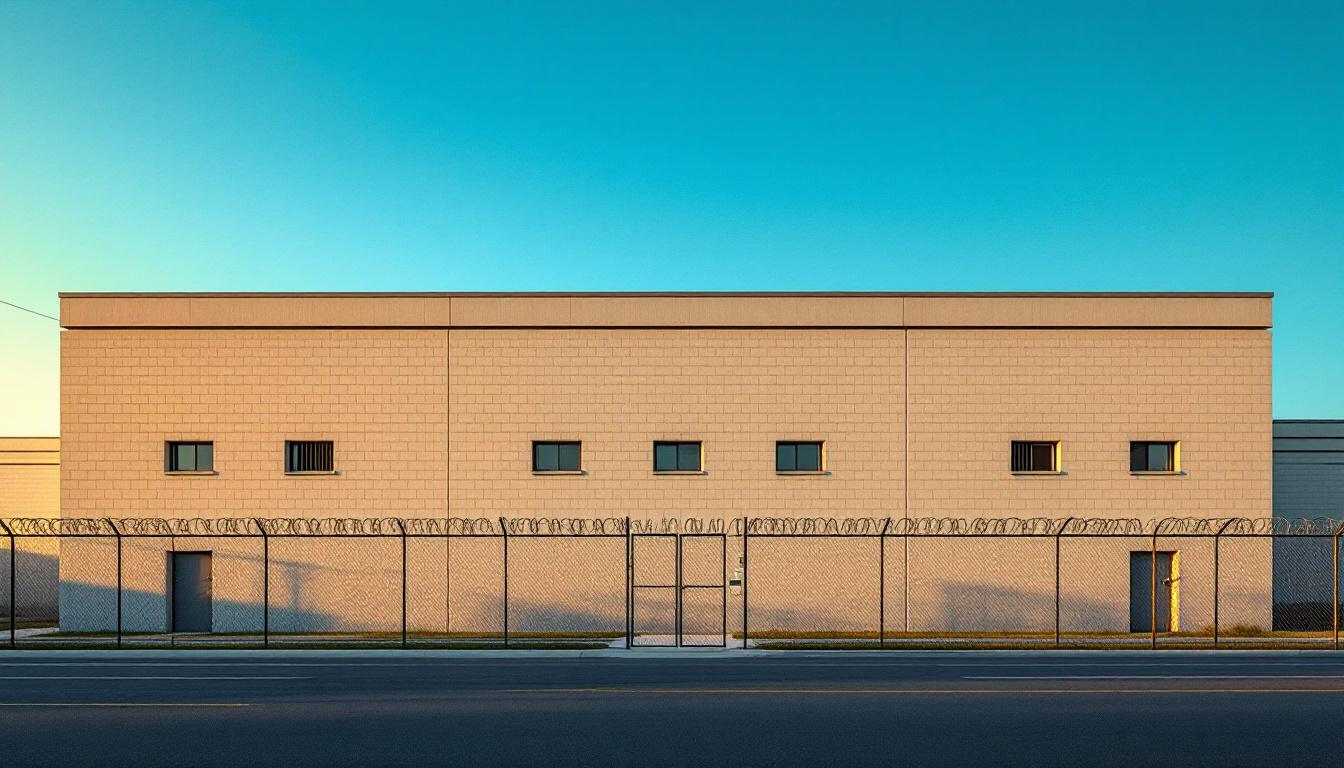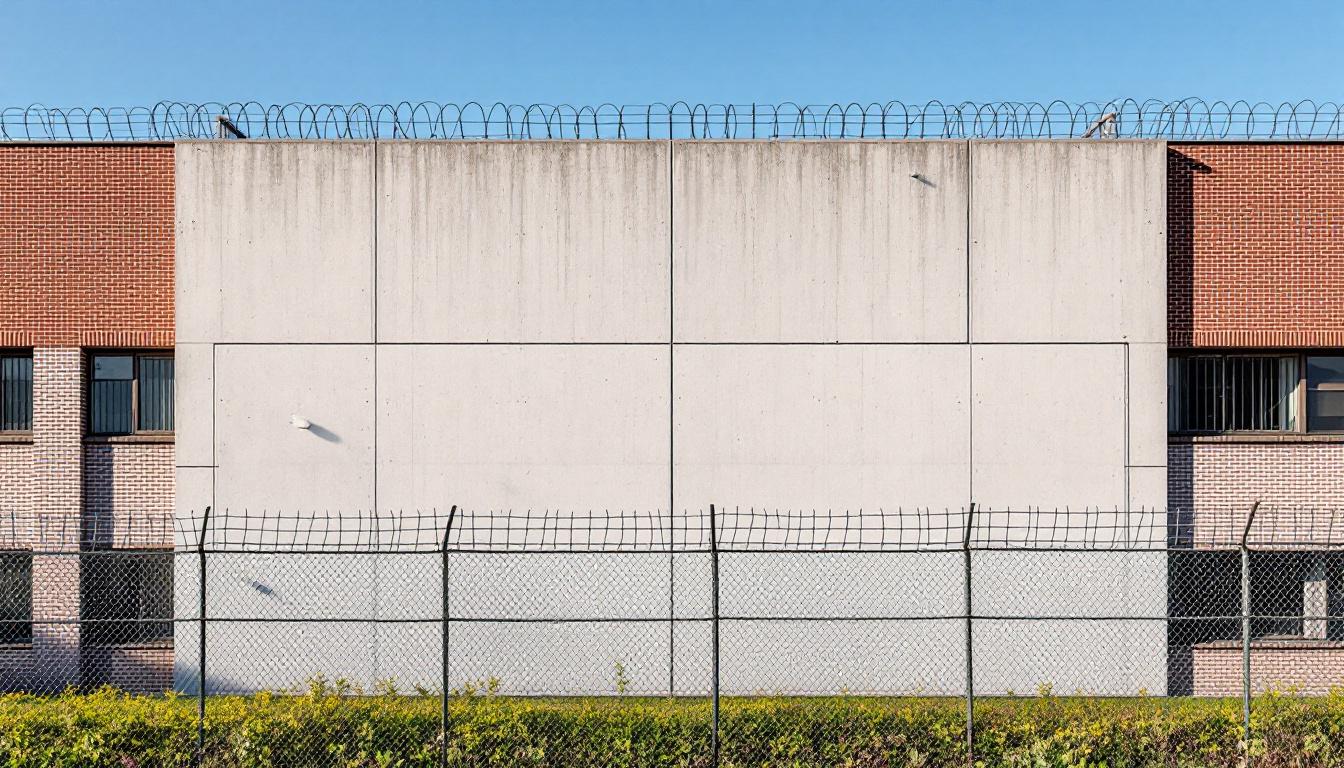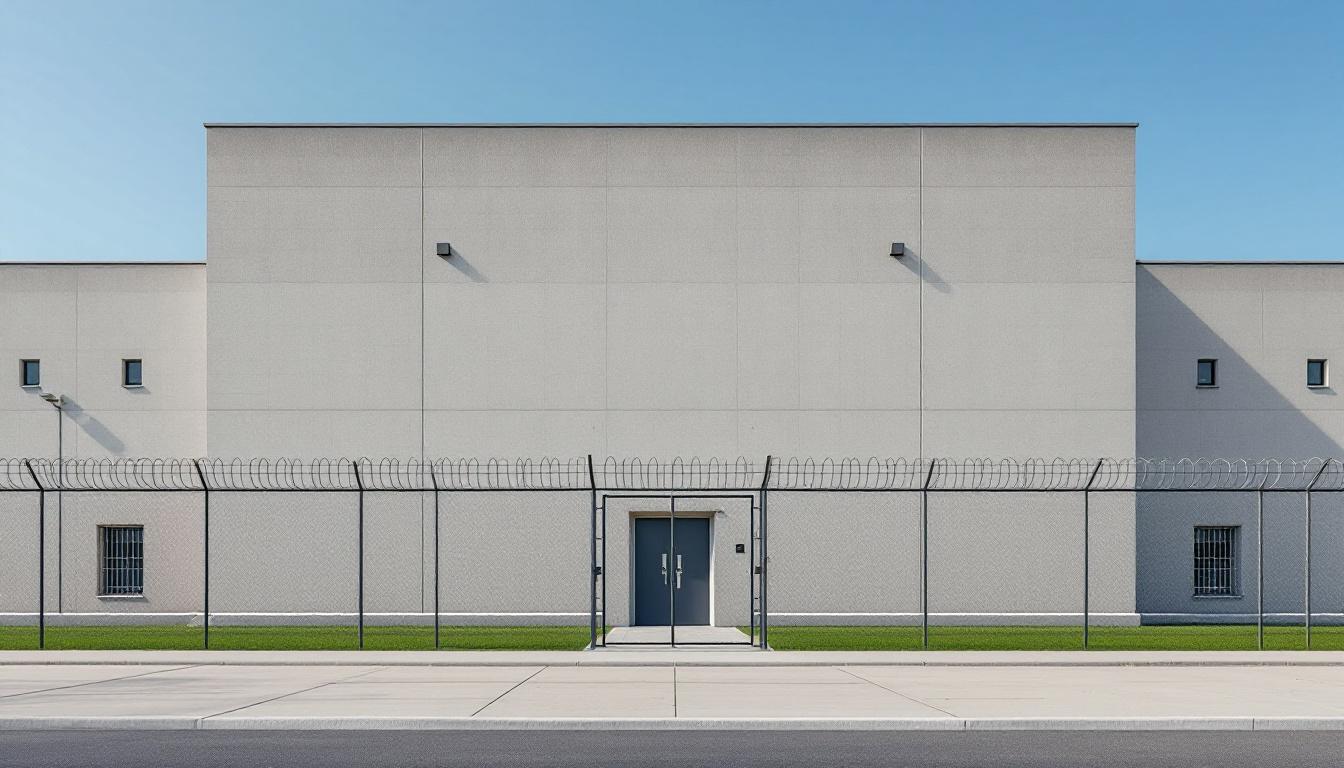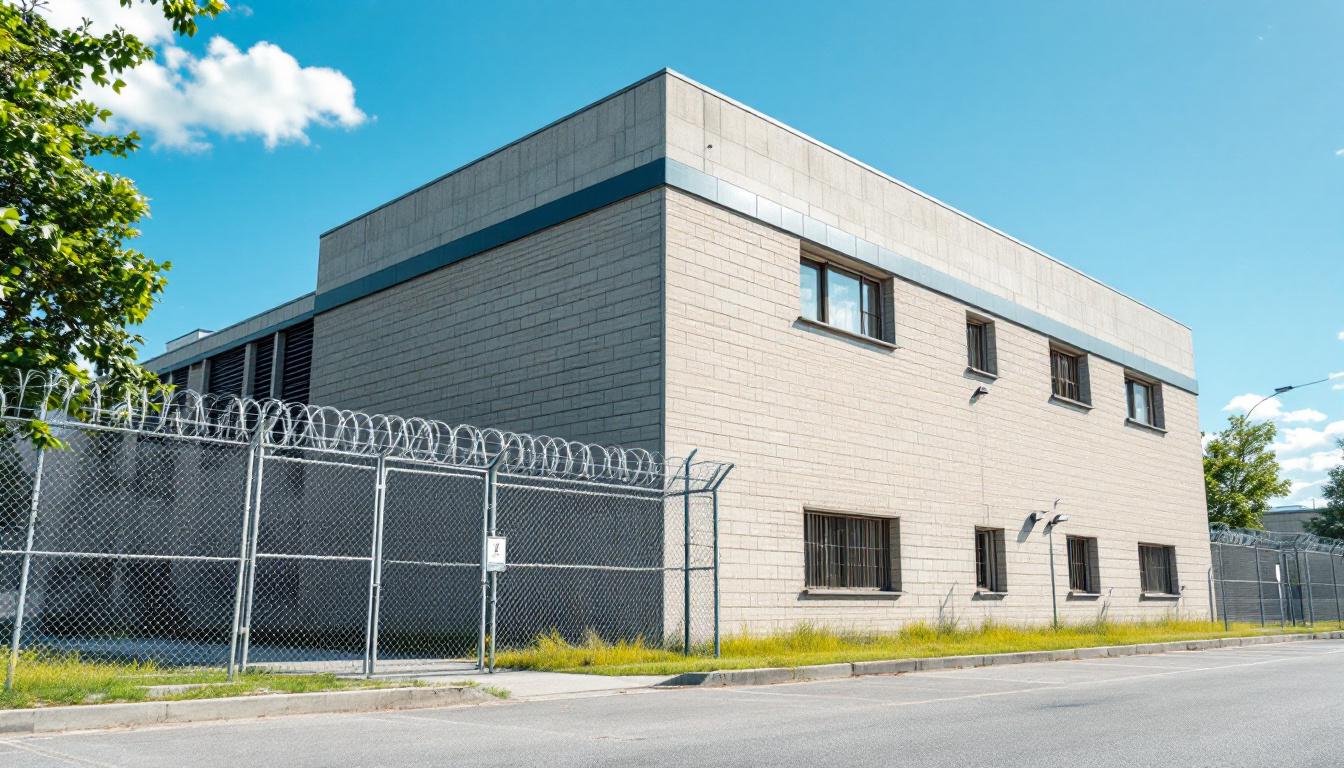
Quick Navigation
How to contact an inmate at Rhode Island Department of Corrections High Security Center
This comprehensive guide will walk you through how to connect with an inmate at Rhode Island Department of Corrections High Security Center. Follow the steps below to find an inmate and send letters and photos:
- Search for the inmate using our search tool below
- Create your account or log in to Penmate
- Write your message (up to 6,000 characters)
- Send instantly - inmates receive printed copies daily
Find an Inmate
Search for an inmate to start communicating today
Tip: You can search by first name, last name, or inmate ID number
To contact a person at Rhode Island Department of Corrections High Security Center start by searching for the person on the official facility website. Perform a search by following these steps:
- Step 1: Enter their first name and last name into the search form and click "Search"
- Step 2: Locate their inmate record
- Step 3: Write down their Inmate ID and any housing information provided
Important! Be sure to enter the person's full name. Nicknames should not be used.
How to Send Messages to Inmates

You can use your phone or computer to send emails, letters, and photos to an inmate. Messages are sent electronically to inmate tablets or kiosks at the facility. If you would like to send a message, start by searching for an inmate at Rhode Island Department of Corrections High Security Center.
Sending Photos and Postcards

A great way to send love and support to a loved one at Rhode Island Department of Corrections High Security Center is to send photos and postcards. It only takes a few minutes to send photos from your phone and it makes a huge difference. You can also mail postcards with words of support and inspiration, or design your own postcard for special moments like birthdays and holidays.
Important! Be sure not to send any explicit photos or they may not be approved by the facility. You can also use a photo printing app like Penmate to make sure your photos are printed at the correct size (4x6 or 3x5) and are mailed according to the rules and regulations of Rhode Island Department of Corrections High Security Center.
Frequently asked questions about Rhode Island Department of Corrections High Security Center
-
How long does it take to deliver a message?
If you're sending an email message your letter is usually delivered within 24-48 hours. For messages sent via mail you should expect delivery within 3-7 days. All messages will need be approved by Rhode Island Department of Corrections High Security Center.
-
How much does it cost to send a message to Rhode Island Department of Corrections High Security Center?
You can send a message free using your phone or mail a message via USPS for the price of a $0.60 stamp and envelope. You can also purchase credits or e-stamps from services starting at $1.99.
-
What services can I use to contact an inmate at Rhode Island Department of Corrections High Security Center?
Penmate
You can use Penmate to send letters and photos to an inmate from your phone. It's an easy way to stay in touch during your loved one's incarceration. Use the inmate locator to find an inmate's location and contact information, then you can send messages within a few minutes.
Securus messaging
Securus may be another option for communicating with an inmate at Rhode Island Department of Corrections High Security Center. You can create a friends and family account and purchase credits to send messages. All messages will be reviewed and must be approved by the facility.
JPay
Some county jails and state prisons may support sending messages with JPay. You must register an account with the system, find your loved one, and purchase stamps to send messages. For some locations you can also attach photos.
Smart Jail Mail
You may also check if Smart Jail Mail is available at Rhode Island Department of Corrections High Security Center. Smart Jail Mail is operated by Smart Communications and has contracted with some state and county jails. After purchasing credits, your messages and photos are sent to the facility, printed out, and then handed out to your loved one.
-
What is the mailing address of Rhode Island Department of Corrections High Security Center?
Mailing address:
Rhode Island Department of Corrections High Security Center
54 Power Rd.
Cranston, RI 02920
Phone: (401) 462-1266 -
What are the visiting hours at Rhode Island Department of Corrections High Security Center?
Visiting hours at Rhode Island Department of Corrections High Security Center vary by housing unit and security level. Generally, visits are scheduled on weekends and holidays, with some facilities offering weekday visits. Contact the facility directly at (401) 462-1266 or check their website for the current visiting schedule. Visits typically last 30-60 minutes and must be scheduled in advance.
-
What items are prohibited when sending mail to Rhode Island Department of Corrections High Security Center?
Prohibited items typically include: cash, personal checks, stamps, stickers, glitter, glue, tape, staples, paperclips, polaroid photos, musical or blank greeting cards, hardcover books, magazines with staples, and any items containing metal or electronics. Only send letters on plain white paper with blue or black ink. Photos must be printed on regular photo paper (no Polaroids). Always check with Rhode Island Department of Corrections High Security Center for their specific mail policies.
-
How do I send money to an inmate at Rhode Island Department of Corrections High Security Center?
You can send money to an inmate at Rhode Island Department of Corrections High Security Center through several methods: 1) Online using JPay, Access Corrections, or the facility's approved vendor, 2) Money orders mailed directly to the facility with the inmate's name and ID number, 3) Kiosks located in the facility lobby, or 4) Over the phone using a credit or debit card. Fees vary by method, typically ranging from $2.95 to $11.95 per transaction.
-
Can I schedule a video visit with an inmate at Rhode Island Department of Corrections High Security Center?
Many facilities now offer video visitation as an alternative to in-person visits. At Rhode Island Department of Corrections High Security Center, video visits may be available through services like Penmate, Securus Video Connect, GTL, or ICSolutions. Video visits typically cost $10-20 for 20-30 minutes and must be scheduled in advance. You'll need a computer or smartphone with a camera and reliable internet connection. Contact the facility for their specific video visitation policies and approved vendors.
-
What identification do I need to visit an inmate at Rhode Island Department of Corrections High Security Center?
All visitors must present valid government-issued photo identification such as a driver's license, state ID, passport, or military ID. Minors must be accompanied by a parent or legal guardian who can provide the minor's birth certificate. Some facilities require visitors to be on the inmate's approved visitation list, which may require a background check. Contact Rhode Island Department of Corrections High Security Center for specific ID requirements and visitor approval procedures.
-
How can I find out an inmate's release date?
To find an inmate's release date at Rhode Island Department of Corrections High Security Center, you can: 1) Use the online inmate search tool if available, 2) Call the facility's records department, 3) Contact the inmate's case manager or counselor, or 4) Have the inmate provide this information during a call or visit. For privacy reasons, some facilities only release this information to immediate family members.
Facility Overview
Contact Information
Rhode Island Department of Corrections High Security Center54 Power Rd.
Cranston, RI 02920
Phone: (401) 462-1266
Official Website

About Rhode Island Department of Corrections High Security Center
Located at 54 Power Road in Cranston, Rhode Island, the High Security Center operates as a supermax correctional facility designed to house inmates requiring the highest levels of custody and control. Found in the heart of Rhode Island’s third-largest city, this specialized facility maintains an operational capacity that supports intensive supervision and security protocols essential for managing its challenging population.
The facility’s approach to corrections emphasizes both security and rehabilitation through its comprehensive Rehabilitation Treatment Unit (RTU), which provides inmates with structured programming and treatment services as an alternative to more restrictive housing arrangements. Educational and personal development opportunities are supported through access to legal and recreational library resources, classroom facilities, and a dedicated space for classification proceedings. The center also maintains essential services including a barber shop and chapel, recognizing the importance of personal care and spiritual support within the correctional environment.
With a bed capacity of many individuals, the High Security Center typically operates below full capacity, allowing for more individualized attention and program participation. The facility’s comprehensive approach to high-security corrections demonstrates Rhode Island’s commitment to maintaining public safety while providing opportunities for personal growth and rehabilitation, even within the most restrictive correctional setting. Visitation services are available through video conferencing systems, helping inmates maintain important family and community connections during their incarceration.
Programs & Services
The Rehabilitation Treatment Unit (RTU) at High Security Center serves as a cornerstone of programming efforts, providing inmates with structured treatment and programming as an alternative to more restrictive housing arrangements. This specialized unit reflects the facility’s approach to offering therapeutic interventions even within a supermax environment. Residents have access to educational resources through the facility’s classroom and legal library, which supports both academic pursuits and legal research needs. The recreational library provides additional learning opportunities and leisure reading materials that can contribute to personal development during incarceration.
Beyond the RTU programming, High Security Center typically provides various support services designed to address the complex needs of its close custody population. The facility may offer individual and group counseling sessions, substance abuse treatment programs, and mental health services tailored to the high-security environment. Educational programming often includes basic literacy instruction, GED preparation, and life skills training that can be adapted for the facility’s operational requirements. Religious and spiritual services are available through the chapel, providing inmates with opportunities for worship, reflection, and pastoral counseling.
Additional support services may include case management assistance, pre-release planning for eligible inmates, and family communication programs that help maintain important relationships. The facility’s barber shop provides vocational training opportunities while meeting basic grooming needs. Healthcare services, including routine medical care, psychiatric treatment, and crisis intervention, are typically integrated into the facility’s operations to address the comprehensive needs of the high-security population. These combined programming efforts aim to provide structure, treatment, and skill development opportunities within the constraints of a maximum-security correctional environment.
Daily Life & Visitation

The High Security Center operates as a supermax facility where inmates requiring close custody and control follow highly structured routines within its 166-bed capacity. Those housed in the facility’s Rehabilitation Treatment Unit (RTU) may participate in programming and treatment activities designed to provide structure as an alternative to more restrictive housing arrangements. Inmates typically have access to educational opportunities in the classroom, spiritual services in the chapel, and personal grooming services at the barber shop, though these activities are carefully scheduled and supervised given the facility’s security level.
Family connections remain important despite the facility’s high-security nature, with video visitation available to help maintain relationships with loved ones. Visitors should check the Rhode Island Department of Corrections Facebook page for current video visitation schedules, as these may change periodically. Currently, the taking of visitor photographs has been suspended, and families should be aware that all visitation procedures follow strict security protocols typical of supermax facilities.
The facility also provides inmates access to legal and recreational library materials, supporting both their legal needs and personal development during incarceration. With an average population of around many individuals, the environment tends to be more controlled and individualized than larger facilities, though daily routines remain highly regimented. Classification board meetings may occur periodically to review housing assignments and program participation, ensuring that each individual’s custody level and programming needs are appropriately addressed within the facility’s secure environment.
Ready to Connect?
Start communicating with your loved one today
Search for an Inmate
